|
Books Should Be Free Loyal Books Free Public Domain Audiobooks & eBook Downloads |
|
|
Books Should Be Free Loyal Books Free Public Domain Audiobooks & eBook Downloads |
|
Non-fiction |
|---|
|
Book type:
Sort by:
View by:
|
By: Jane Andrews (1833-1887) | |
|---|---|
 The Stories Mother Nature Told Her Children
The Stories Mother Nature Told Her Children
“You may think that Mother Nature, like the famous “old woman who lived in the shoe,” has so many children that she doesn’t know what to do. But you will know better when you become acquainted with her, and learn how strong she is, and how active; how she can really be in fifty places at once, taking care of a sick tree, or a baby flower just born; and, at the same time, building underground palaces, guiding the steps of little travellers setting out on long journeys, and sweeping, dusting, and arranging her great house,–the earth... | |
By: Helen Fryer | |
|---|---|
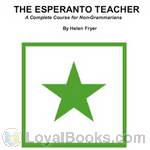 The Esperanto Teacher
The Esperanto Teacher
The international language Esperanto was first released to the world in 1887, when L. L. Zamenhof published his first book, “Dr. Esperanto’s International Language”. Since that time, many learning books have been developed to help the beginner attain a proficiency in the language. Helen Fryer’s “Esperanto Teacher” is one of the earliest of these attempts in English. Divided into 45 short and easy lessons and supplemented with sections on joining words, exclamations, compound words, arrangement... | |
By: Fridtjof Nansen (1861-1930) | |
|---|---|
 Farthest North
Farthest North
Being the Record of a Voyage of Exploration of the Ship "Fram", 1893-96 and of a Fifteen Months' Sleigh Journey by Dr. Nansen and Lieut. Johansen / by Fridtjof Nansen; with an Appendix by Otto Sverdrup | |
By: Desiderius Erasmus (1466/69-1536) | |
|---|---|
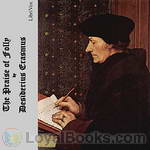 The Praise of Folly
The Praise of Folly
The Praise of Folly (Greek title: Morias Enkomion (Μωρίας Εγκώμιον), Latin: Stultitiae Laus, sometimes translated as In Praise of Folly, Dutch title: Lof der Zotheid) is a satirical essay written in 1509 by Desiderius Erasmus of Rotterdam (1466/69-1536). It is considered one of the most influential works of literature in Western civilization and one of the catalysts of the Protestant Reformation.It starts off with a satirical learned encomium after the manner of the Greek satirist... | |
By: Charles Ellms | |
|---|---|
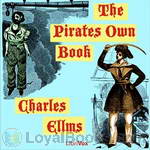 The Pirates Own Book
The Pirates Own Book
Authentic Narratives of the Most Celebrated Sea Robbers. | |
By: Saint Therese (1873-1897) | |
|---|---|
 The Story of a Soul
The Story of a Soul
Marie Francoise Therese Martin, affectionately known as ‘The Little Flower’, was born on January 2, 1873, in Alencon, France to Louis Martin and Zelie Guerin. She was the youngest and one of five surviving sisters of the nine Martin children. When Therese was 3, her mother died. Louis Martin moved his family to Lisieux to be closer to his late wife’s brother and his family. It was there that Therese’s sister, Pauline, entered the Carmel at Lisieux on October 2, 1882. Therese at that time also heard the Divine Call to religious life... | |
By: Thames Williamson | |
|---|---|
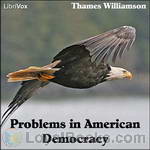 Problems in American Democracy
Problems in American Democracy
Problems in American Democracy is a very detailed, specific explanation of some of the underlying and surface problems of a democracy system of government, particularly of the American form of democracy. Though lengthy, it is a great read for people who want to learn more about different types of government and the foundations of our own government in the United States of America. | |
By: Steve Solomon | |
|---|---|
 Gardening Without Irrigation: or without much, anyway
Gardening Without Irrigation: or without much, anyway
Gardening expert Steve Solomon has written extensively on gardening techniques for the home gardener. Water conservation is the focus of this work, along with more information on how to have the healthiest plants in your garden through “fertigation”, appropriate plant rotation, and soil preparation. | |
 Organic Gardener's Composting
Organic Gardener's Composting
The art and science of composting is presented in a humorous and readable manner from the basic elements to the in-depth science. An entire chapter is devoted to composting with red worms (vermiculture), and detailed information is provided on building different types of composting units. The history of the organic gardening movement is included as well as an annotated bibliography of works on the subjects of composting and food gardening. | |
By: Saint Justin Martyr | |
|---|---|
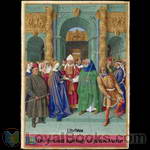 The Second Apology of Justin Martyr
The Second Apology of Justin Martyr
A defense of the Christian faith delivered by St. Justin Martyr to the Roman Senate in the second century AD | |
By: Fritz Kreisler | |
|---|---|
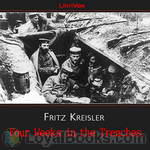 Four Weeks in the Trenches
Four Weeks in the Trenches
A brief record of the fighting on the Eastern front in the great war by a participant in that great and terrible conflict | |
By: Carl von Clausewitz (1780-1831) | |
|---|---|
 On War
On War
A classic work on military strategy by a veteran of the Napoleonic Wars. The author's style is dialectical: he makes two strong but opposing statements and then draws them together to describe many facets of war. Free of technical jargon, and suitable for modern readers. This audiobook is based on a 1909 English translation. | |
By: John S. Mosby (1833-1916) | |
|---|---|
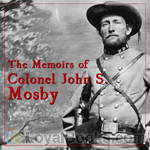 The Memoirs of Colonel John S. Mosby
The Memoirs of Colonel John S. Mosby
This is not a work of fiction! These are the actual memoirs of a legendary leader of partisans who bedeviled the Union army for years, almost within sight of the capitol. With only a few local men under command, John Singleton Mosby’s ability to strike fast and then melt away before an effective pursuit could be organized kept the Yankee forces awake and often snarled in knots. With daring feats like capturing a Yankee general out of his bed within his defended headquarters, Mosby made his name a synonym for guerrilla warfare... | |
By: Théodule Ribot (1839-1916) | |
|---|---|
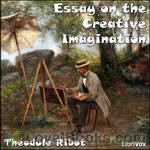 Essay on the Creative Imagination
Essay on the Creative Imagination
“It is quite generally recognized that psychology has remained in the semi-mythological, semi-scholastic period longer than most attempts at scientific formulization. For a long time it has been the “spook science” per se, and the imagination, now analyzed by M. Ribot in such a masterly manner, has been one of the most persistent, apparently real, though very indefinite, of psychological spooks. Whereas people have been accustomed to speak of the imagination as an entity sui generis, as a... | |
By: James Stephens (1882-1950) | |
|---|---|
 The Insurrection in Dublin
The Insurrection in Dublin
The Easter Rising was a rebellion staged in Ireland in Easter Week, 1916. The Rising was an attempt by militant Irish republicans to win independence from Britain by force of arms. This account was written by Irish novelist James Stephens, who lived and worked in Dublin at the time. | |
By: Lysander Spooner | |
|---|---|
 Essay on the Trial by Jury
Essay on the Trial by Jury
FOR more than six hundred years that is, since Magna Carta, in 1215 there has been no clearer principle of English or American constitutional law, than that, in criminal cases, it is not only the right and duty of juries to judge what are the facts, what is the law, and what was the moral intent of the accused; but that it is also their right, and their primary and paramount duty, to judge of the justice of the law, and to hold all laws invalid, that are, in their opinion, unjust or oppressive, and all persons guiltless in violating, or resisting the execution of, such laws... | |
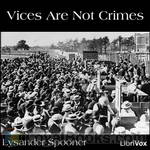 Vices Are Not Crimes
Vices Are Not Crimes
Lysander Spooner was an American individualist anarchist, entrepreneur, political philosopher, abolitionist, supporter of the labour movement, and legal theorist of the nineteenth century. Here he gives his views on the role of Governments in the private lives of their citizens | |
By: Russell Herman Conwell (1843-1925) | |
|---|---|
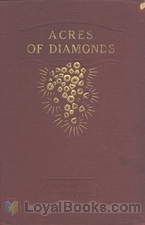 Acres of Diamonds
Acres of Diamonds
Text of famous inspirational lecture and biography of Russell Conwell, a Baptist minister and Temple University Founder | |
By: M. M. Pattison Muir (d1931) | |
|---|---|
 The Story of Alchemy and the Beginnings of Chemistry
The Story of Alchemy and the Beginnings of Chemistry
A light journey through the history of chemistry, from its start in the obscure mysteries of alchemy to what was, for the author, the cutting edge of the development of modern atomic theory … and whose developing blind ends we can now see with the advantage of hind sight. | |
By: Chesterton, G. K. | |
|---|---|
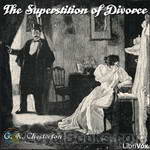 The Superstition of Divorce
The Superstition of Divorce
This short book was written in 1920, and in it Chesterton, with his usual wit and incisive logic, presents a series of articles defending marriage and indicating the weaknesses in divorce. He did this 16 year before the first Christian denomination in the world allowed it’s members to divorce. Till then Christendom was unanimous in standing against it. Chesterton saw clearly the trends of this time, and delivered this defense. | |
By: Lacy Collison-Morley | |
|---|---|
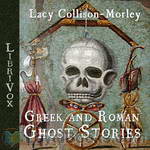 Greek and Roman Ghost Stories
Greek and Roman Ghost Stories
A non-fiction work, comparing and collecting ghost stories by Classical Greek and Republican or Imperial Roman authors. | |
By: Abner Doubleday (1819-1893) | |
|---|---|
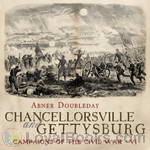 Chancellorsville and Gettysburg
Chancellorsville and Gettysburg
Abner Doubleday began the Civil War as a Union officer and aimed the first cannon shot in response to the bombardment opened on Ft. Sumter in 1861. Two years later, after a series of battles (including Antietam, where he was wounded), Doubleday took over a division in the Army of the Potomac's 1st Corps.These are his memoirs of service in two of the War's great campaigns. At Chancellorsville, a very promising start made by General Hooker against Lee's Confederate forces fell to a defeat when, in... | |
By: Xenophon | |
|---|---|
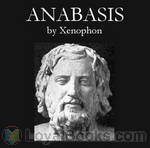 Xenophon's Anabasis
Xenophon's Anabasis
Xenophon the Athenian was born 431 B.C. He was a pupil of Socrates. He marched with the Spartans, and was exiled from Athens. Sparta gave him land and property in Scillus, where he lived for many years before having to move once more, to settle in Corinth. He died in 354 B.C. “Anabasis” is a Greek work which meane “journey from the coast to the center of a country.” This is Xenophon’s account of his march to Persia with a troop of Greek mercenaries to aid Cyrus, who enlisted Greek help to try and take the throne from his brother Artaxerxes, and the ensuing return of the Greeks, in which Xenophon played a leading role... | |
By: Lafcadio Hearn (1850-1904) | |
|---|---|
 Japan: An Attempt at Interpretation
Japan: An Attempt at Interpretation
Greece-born Lafcadio Hearn (1850 - 1904) spent decades of his life in Japan, even marrying a Japanese woman, thus becoming a Japanese citizen by the name of Koizumi Yakumo (小泉 八雲). He wrote many books on Japan, especially about its folklore. In this posthumously published book, he takes a closer look at Japan's religious history: How it developed from ancient beliefs into Shintoism, resisted suppression attempts by both Buddhism and Christianity and how – despite efforts to westernise Japan during the era known as Meiji Restoration – it remained the basis for Japanese society... | |
By: British Parliament | |
|---|---|
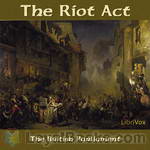 The Riot Act
The Riot Act
The Riot Act was passed by the British Parliament in 1714, the first year of the reign of George I, and came into effect in August 1715. This was a time of widespread social disturbance, as the preamble describes; the Act sought to put an end to this. A group of twelve or more people, “being unlawfully, riotously and tumultuously assembled”, would be read a proclamation; they must disperse within an hour, on pain of death. The same fate would befall anyone preventing the reading of the proclamation, or damaging buildings while on a riot... | |
By: Harold W. Fairbanks (1860-1952) | |
|---|---|
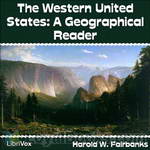 The Western United States: A Geographical Reader
The Western United States: A Geographical Reader
“In preparation of this book the author has had in mind the needs of the upper grammar grades. The subject matter has not been selected with the object of covering the field of Western geography in a systematic manner, but instead the attempt has been made to picture as graphically as may be some of its more striking and interesting physical features, and the influence which these features have exerted upon its discovery and settlement.” (from the Preface of The Western United States) | |
By: United States Arms Control and Disarmament Agency | |
|---|---|
 Worldwide Effects of Nuclear War: Some Perspectives
Worldwide Effects of Nuclear War: Some Perspectives
This is a concise yet thorough explanation of what might happen to our world in the aftermath of a nuclear war. The myriad of potential effects will be global and wide-spread, and the potentials are glazed over in this short work. | |
By: Carlton McCarthy (1847-1936) | |
|---|---|
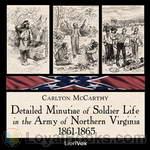 Detailed Minutiae of Soldier Life in the Army of Northern Virginia, 1861-1865
Detailed Minutiae of Soldier Life in the Army of Northern Virginia, 1861-1865
The author, who fought as a private in the Army of Northern Virginia during the Civil War, describes the Confederate soldier’s daily struggles with hunger, illness, fear, and the perils of combat; as well as his pride of service, love of comrades, and courage in the face of overwhelming odds | |
By: John L. Cotter (1911-1999) | |
|---|---|
 New Discoveries at Jamestown
New Discoveries at Jamestown
Chances are, you are reading this because you are aware that Jamestown, Virginia, celebrated its 400th birthday in 2007. It was the first “successful” English settlement in America. Although the colonists eventually moved upriver to be quit of the hard luck and difficult conditions on the small island, they left behind a trove of possessions – used, worn out, or forgotten. Did you ever stop to consider just how many different items you have, need, or use, to live, work, and amuse yourself? Chances are that you would seriously underestimate! But once you put such a list together, another person could tell quite a story about the life you lead... | |
By: Stanton H. King | |
|---|---|
 Dog-Watches at Sea
Dog-Watches at Sea
Stanton H. King was from Barbados and followed his brothers to sea at the age of twelve in 1880. He spent only twelve years at sea for reasons given in this book. Thereafter, he became associated with the Sailors’ Haven, Boston, Massachusetts and became its director. He was also a renowned Chantie singer and, in 1918, King’s Book Of Chanties was published. King views the sailing life from “before the mast”, that is, through the eyes of the common sailor. | |
By: Mary Antin | |
|---|---|
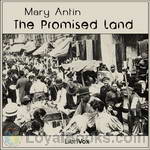 The Promised Land
The Promised Land
Being a Jew in Russia at the end of the 19th century was not easy at all. Jews were persecuted because of their religion. So the Jews found comfort in their ancient traditions. When Mary Antin’s father decided that keeping to his traditions did not suit him anymore, he found no place in Russia. So he emigrated to America with his family. Life was not easy, though as a child, Mary describes life in Boston as almost perfect. A smart and dignified girl, Mary takes the good things in anything and writes her autobiography with a smile. | |
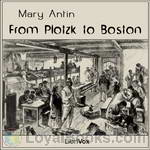 From Plotzk to Boston
From Plotzk to Boston
An intensely personal account of the immigration experience as related by a young Jewish girl from Plotzk (a town in the government of Vitebsk, Russia). Mary Antin, with her mother, sisters, and brother, set out from Plotzk in 1894 to join their father, who had journeyed to the “Promised Land” of America three years before. Fourth class railroad cars packed to suffocation, corrupt crossing guards, luggage and persons crudely “disinfected” by German officials who feared the cholera, locked “quarantine” portside, and, finally, the steamer voyage and a famiily reunited... | |